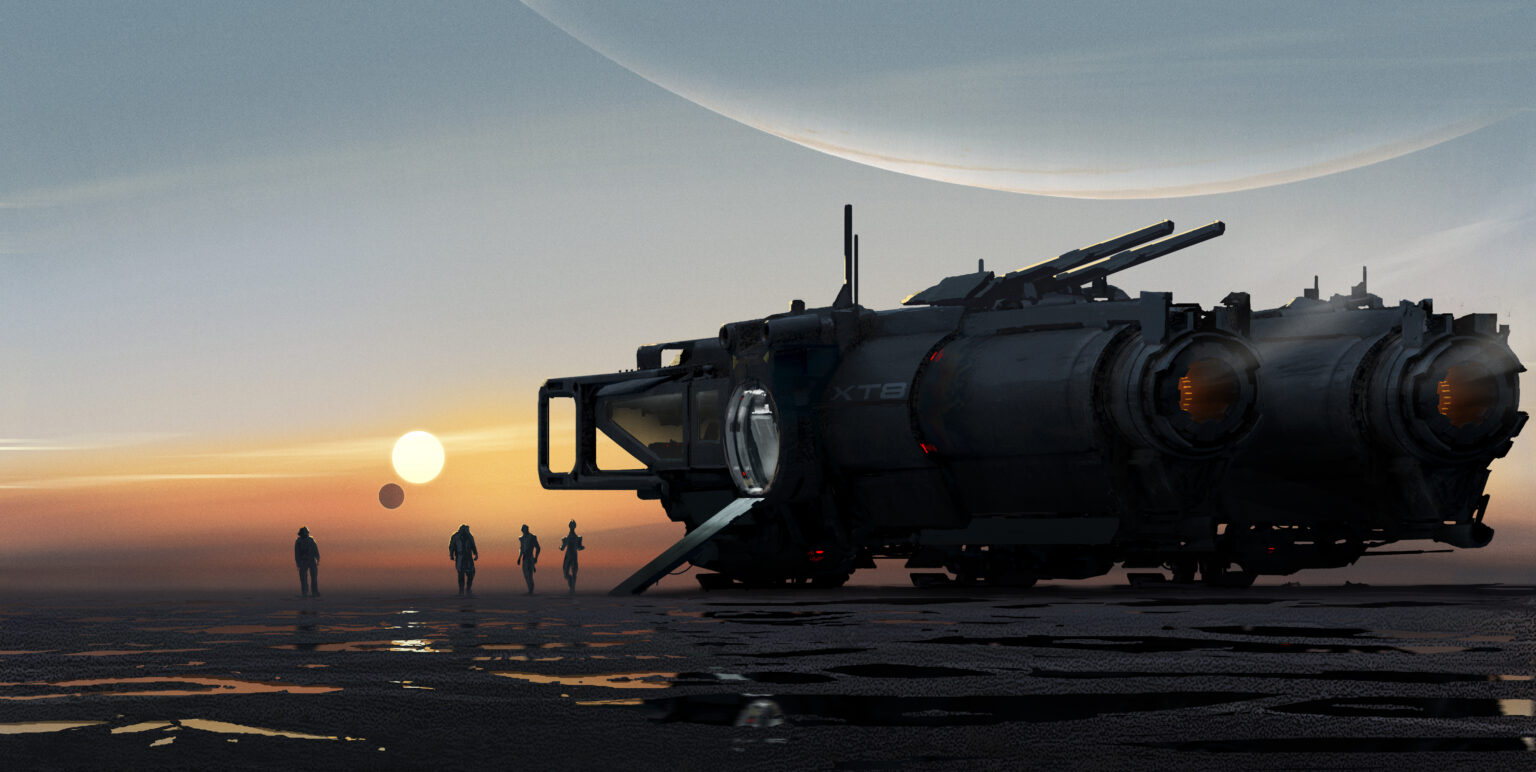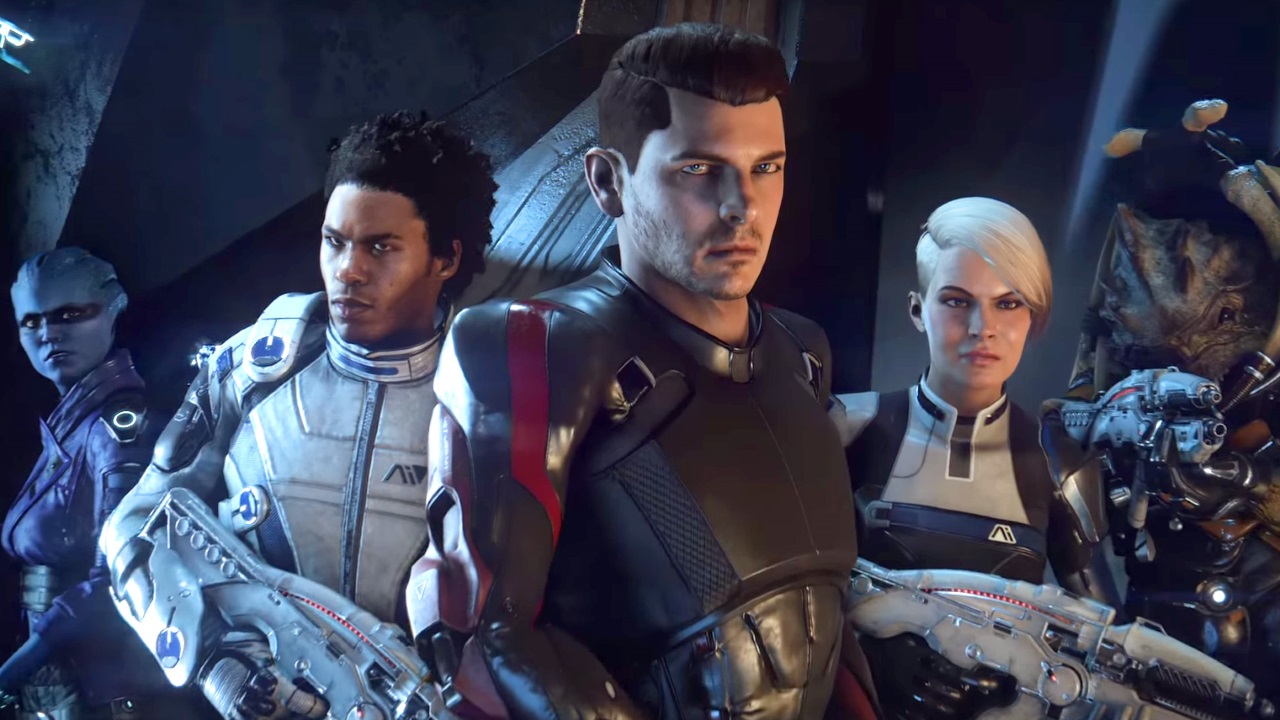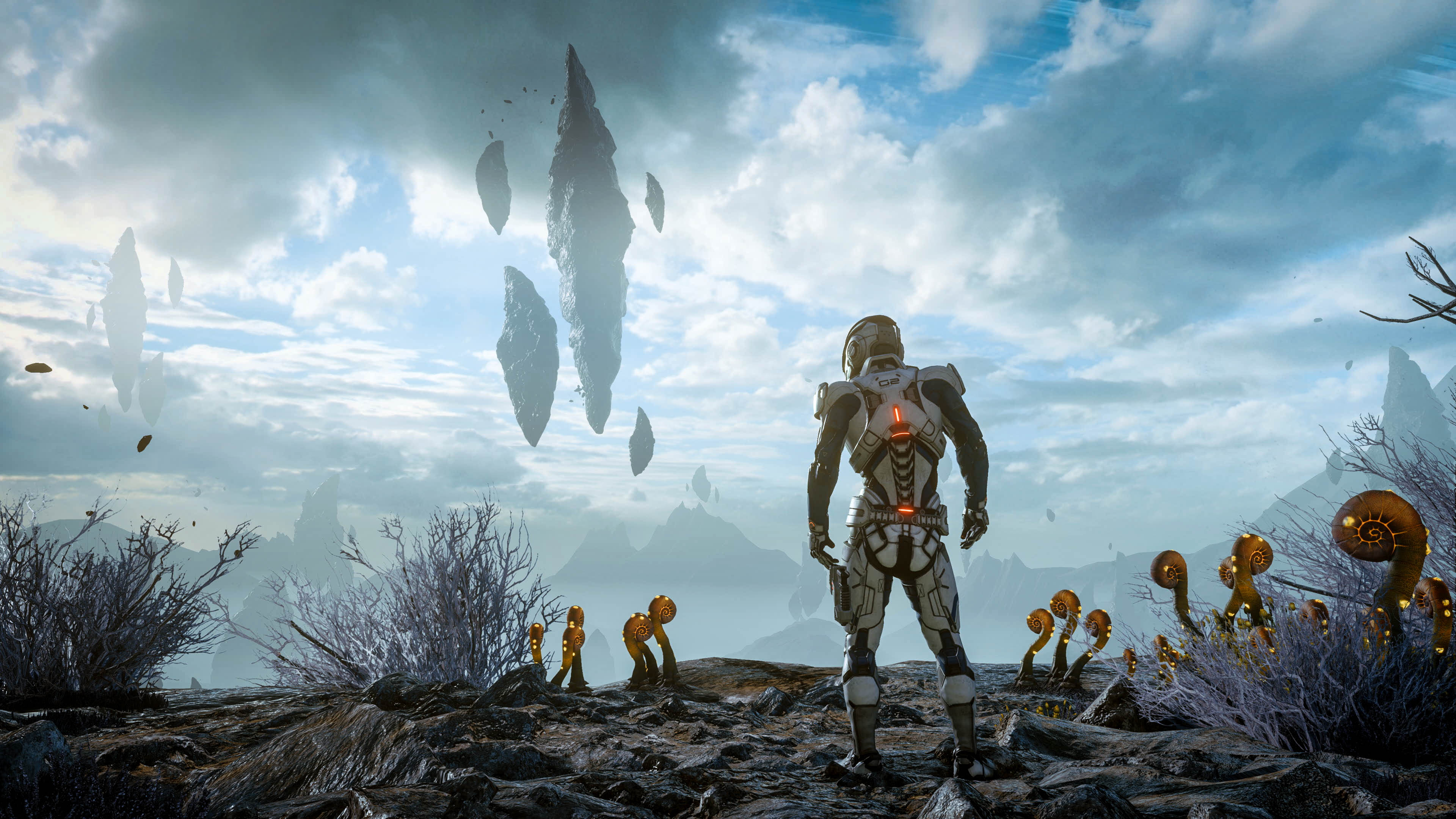
When did Mass Effect fans care more about the past than the future? Nothing speaks volumes more about the series' recent history than the fact that of the two major announcements on this year's N7 day – a remaster of the original trilogy in the form of the Legendary Edition and a brand new Mass Effect game – one got fans talking way more than the other. Unsurprisingly, it was not for the next entry in the series, but the trilogy that wrapped up in 2012. Bioware's turbulent history might not inspire much faith at the moment, but surely, a step forward is more exciting than a look back?
Well, perhaps in Mass Effect's case, the future has always been fraught with danger. Mass Effect 3 brought the original trilogy to a close with an ending so controversial to some fans, Bioware released a DLC pack to expand on it. Then, after a 5-year wait and a new console generation, Mass Effect: Andromeda promised an entirely different galaxy to explore, with new characters and existential threats. It did deliver that… just with a whole raft of bugs at launch. And look, I actually like Andromeda, but there's no doubt that the next Mass Effect needs to learn from it if it's going to get fans looking forward again.
Galaxy Quest

I can understand the reticence about getting excited for a new trip into Bioware's galaxy, as it might feel a little like deja vu. Mass Effect: Andromeda's promise was simple. You've saved the Milky Way galaxy, but what lies beyond that? It gave us a tantalising prospect of an entirely new Mass Effect experience, as the central character Ryder is set the task of finding a new home, and is shorn of the baggage Shepard had accumulated over the years. It also gave Bioware a chance to make us feel like we're the alien in the process. That was, and remains, a thrilling prospect.
And then, after a tumultuous development that involved multiple delays, the final game launched in a pretty bad place. While facial animations were quickly highlighted (and let's be honest, mocked roundly), there were several game-breaking bugs that fuelled disappointment. Yet for all the issues around Andromeda's launch, one of the biggest problems slipped under the radar. For a game about charting the unknown, there wasn't anything all that alien to it. The game introduced a smattering of new races, while the new galaxy felt broadly similar to the one we left behind, save for one or two planets. The promise of Andromeda felt broadly unfulfilled.

Bioware's next Mass Effect game should rectify that. While the glimpses of concept art we've seen don't give too much away, they at least give us a sense that exploration will play a key role again. And with that, I hope that means it'll build on the more distinctive areas of Andromeda, like the planet Havarl. This area felt like nothing we'd seen in a Mass Effect game before, an over-growing planet whose vegetation was a distinctive purple and luminescent blue. I want my next trip to Bioware's sci-fi series to surprise me with the locations I visit, as well as the aliens I meet.
Likewise, if the original Mass Effect introduced a galaxy's worth of races, then Andromeda seemed to only introduce a planet's worth. There was The Kett, a group of aggressive aliens who had a name that sounded like the drug and looked like sentient boulders with limbs. The Angarans made more of an impression, who sort of like a more feline version of Ahsoka Tano, but again, there just wasn't enough to make us feel like we truly had left the Milky Way. Just because Andromeda didn't deliver on these ideas doesn't mean that Bioware should discard them though, as the glimpses we did get of an original universe offer plenty for the developer to build upon.
Mass Appeal

I know you might doubt my claim that I actually like Andromeda by this point, but there's still plenty from it I would love to see in the next Mass Effect. While combat was never the series' strong point beforehand, it absolutely was in Andromeda. The scope of what you could do was expanded and not tied to specific classes, so you were able to mix different powers to create a character that felt truly distinct. Add in the ability to build combos by using one power to prime and another to detonate, and Andromeda had combat that excited rather than feeling perfunctory like it does in the original trilogy.
Sign up to the GamesRadar+ Newsletter
Weekly digests, tales from the communities you love, and more
Now, fans never came to Mass Effect for the combat, but if Bioware manages to marry the stellar foundations of Andromeda's action to a more unfamiliar universe, then fans should be excited for what the developer can achieve. And while the news of Casey Hudson and Mark Darrah's departure isn't the best of signs, it also shouldn't be seen as a death knell. Mass Effect has clearly needed a fresh perspective for a while, and Andromeda recognised that. It might not have delivered it the way we wanted, but hopefully, it provides a blueprint for Bioware to learn from.

Ben Tyrer is a freelance games journalist with over ten years experience of writing about games. After graduating from Bournemouth University with a degree in multimedia journalism he's worked for Official PlayStation Magazine as a staff writer and games editor, as well as GamesRadar+ (hey, that's this website!) as a news editor. He's also contributed to Official Xbox Magazine, Edge, PC Gamer, GamesMaster, PC Games N, and more. His game of the year - no matter the year - is Rocket League.


